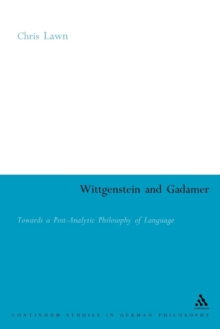
Hume's Social Philosophy : Human Nature and Commercial Sociability in A Treatise of Human Nature PDF
by Finlay Christopher J. Finlay
Part of the Continuum Studies in British Philosophy series
Please note: eBooks can only be purchased with a UK issued credit card and all our eBooks (ePub and PDF) are DRM protected.
Description
In Hume's Social Philosophy, Christopher J Finlay presents a highly original and engaging reading of David Hume's landmark text, A Treatise of Human Nature, and political writings published immediately after it, articulating a unified view of his theory of human nature in society and his political philosophy. The book explores the hitherto neglected social contexts within which Hume's ideas were conceived. While a great deal of attention has previously been given to Hume's intellectual and literary contexts, important connections can also be made between the fundamentals of Hume's philosophy and the social world in which it was developed.
Finlay argues that Hume's unified theory of human nature, conceived in terms of passions, reason and sociability, was meant to account for human nature in its most articulate manifestations, in the commercial and 'polite' social contexts of eighteenth-century Europe. Through careful exegetical study of Hume's analysis of reasoning and the passions, Finlay explores the diverse aspects of sociability which the Treatise of Human Nature invokes. In particular, this study finds in the Treatise an important exploration of the tensions between the selfish motivations of individuals and their propensity to bond with others in complex and diverse kinds of social group. Analysis of Book III of the Treatise and of essays published afterwards shows how the various individualist and social propensities explored through the passions are addressed in Hume's theories of justice, morals and politics.
Finlay argues that Hume's unified theory of human nature, conceived in terms of passions, reason and sociability, was meant to account for human nature in its most articulate manifestations, in the commercial and 'polite' social contexts of eighteenth-century Europe. Through careful exegetical study of Hume's analysis of reasoning and the passions, Finlay explores the diverse aspects of sociability which the Treatise of Human Nature invokes. In particular, this study finds in the Treatise an important exploration of the tensions between the selfish motivations of individuals and their propensity to bond with others in complex and diverse kinds of social group. Analysis of Book III of the Treatise and of essays published afterwards shows how the various individualist and social propensities explored through the passions are addressed in Hume's theories of justice, morals and politics.
Information
-
Download - Immediately Available
- Format:PDF
- Pages:214 pages
- Publisher:Bloomsbury Publishing
- Publication Date:21/06/2007
- Category:
- ISBN:9781441137579
Information
-
Download - Immediately Available
- Format:PDF
- Pages:214 pages
- Publisher:Bloomsbury Publishing
- Publication Date:21/06/2007
- Category:
- ISBN:9781441137579










